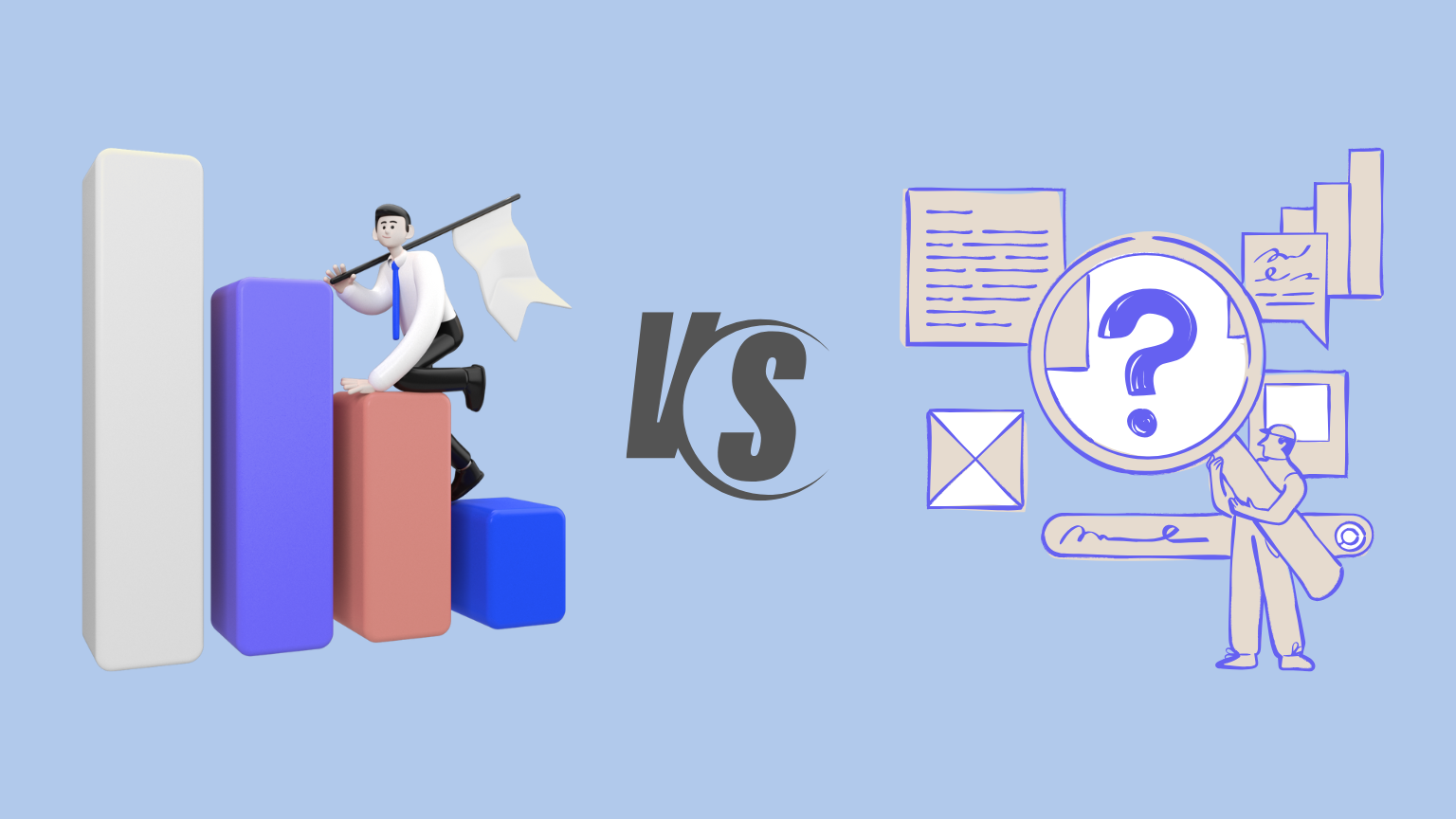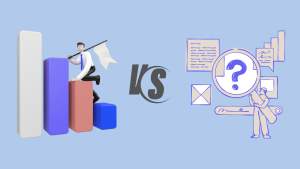Career choices were once determined by a blend of parental advice, aptitude tests, and gut feelings. Fast forward to today, and we’re navigating an entirely new landscape where technology for career planning is more than a trend, it’s becoming a necessity.
From AI career guidance tools that map out personalized career paths to that match you with in-demand skills, technology is reshaping how we approach growth.
The question is no longer “What career should I choose?” but “How can I use technology to guide my career journey?” This blog dives into the tools, techniques, and future-ready skills that can make your professional journey smarter, sharper, and more resilient.
Why Traditional Career Guidance Falls Short?
For decades, career counseling followed a rigid playbook: standardized tests, personality assessments, and cookie-cutter recommendations. While helpful to some extent, these methods lacked the data-driven insights that today’s fast-changing world demands.
Three major gaps stand out:
- One-size-fits-all recommendations – Traditional guidance assumes people with similar test scores have the same potential. That’s outdated.
- Limited adaptability – Once given, guidance rarely evolves with changing industries or skill demands.
- No predictive insights – Old methods can’t forecast emerging roles or identify future tech skills for career success.
This is where technology fills the void, offering personalized, predictive, and continuous guidance.
Core Technologies Guiding Career Journeys
Technology isn’t just influencing jobs, it’s actively shaping how we choose and grow in them. Here are the key tech levers transforming career planning:
1. AI Career Guidance Tools
AI algorithms analyze resumes, portfolios, academic records, and even behavioral data to recommend optimal career paths. Think of them as digital advisors, constantly scanning market trends to align your skill set with what employers actually want.
- Career path prediction using AI enables platforms to forecast potential trajectories based on your current profile.
- Example: Some AI-driven apps suggest not just roles but learning paths, connecting you directly to relevant certifications or courses.
Also read: The role of AI in career
2. Skill-Matching Engines & Future Skills Mapping
AI doesn’t stop at suggestions. Advanced skill-matching engines compare your abilities with industry benchmarks, highlighting gaps you should address. This is crucial in an era where future tech skills for career growth, such as AI literacy, data analysis, and digital collaboration, are becoming non-negotiable.
- These tools don’t just say, “You’re fit for marketing.” They’ll say, “You’re 70% ready for digital marketing, but if you add analytics and SEO, you’ll unlock better opportunities.”
3. Analytics & Career Dashboards
Data visualization isn’t just for businesses anymore. Career dashboards track everything, skills acquired, certifications completed, and milestones achieved. They function like fitness trackers for your career, reminding you when it’s time to upskill.
4. Immersive Technologies (AR/VR)
Imagine exploring careers through AR/VR job simulations. Instead of guessing what an architect, coder, or surgeon does, you step into a simulated environment. This gamified approach removes guesswork, giving you hands-on exposure before committing.
5. Social and Networking Platforms
LinkedIn, GitHub, and specialized forums act as digital career development platforms, connecting talent with mentors, recruiters, and communities. They enable you to learn directly from industry insiders while staying visible to potential employers.
Why should you join specialized network platform? Read it here!
Real-World Examples of Technology in Career Planning
To see this transformation in action, consider a few real-world scenarios:
- Switching Industries with AI: A finance professional used an AI career guidance tool that analyzed transferable skills. The tool recommended data science as a viable transition, mapped out courses, and even simulated salary growth. Within two years, she successfully pivoted to a tech role.
- Digital Platforms Driving Growth: Platforms like Coursera or LinkedIn Learning are now more than e-learning spaces. They act as digital career development platforms, where your course completions feed directly into your profile, improving visibility for recruiters.
- Career Path Prediction Using AI: Universities are increasingly deploying predictive analytics to guide students into fields with high employability rates, aligning their education with real-world demand.
These stories aren’t just anecdotes, they represent a larger shift where individuals no longer rely on gut feeling but on technology for career planning.
How to Use Technology in Your Career Planning?
The idea of integrating tech into your career journey can feel overwhelming. Here’s a step-by-step guide:
Step 1: Self-Assessment through Tools
Start by using career assessment apps that map your strengths, weaknesses, and preferences.
Step 2: Leverage AI for Recommendations
Turn to AI career guidance tools for personalized suggestions. These platforms can highlight roles aligned with your skills and outline the most efficient learning paths.
Step 3: Build Future-Proof Skills
Invest time in acquiring in-demand tech skills. Whether it’s cloud computing, data literacy, or cybersecurity, focus on the competencies flagged by technology-driven assessments.
Step 4: Track Progress with Dashboards
Use digital platforms that offer analytics, so you can monitor progress. Career dashboards help you stay accountable.
Step 5: Balance Tech with Human Mentorship
While digital career development platforms offer automation, don’t ignore human insight. Pair AI-driven insights with mentors who provide context, nuance, and emotional support.
This hybrid approach ensures you leverage the best of both worlds.
Challenges and Considerations
Technology is powerful, but it isn’t flawless. Here are some challenges you need to navigate:
- Bias in AlgorithmsAI models may inherit bias from historical data, leading to skewed recommendations.
- Privacy ConcernsSharing personal data with digital platforms raises legitimate questions about security.
- Overreliance on ToolsRelying solely on AI strips the career journey of human perspective. Remember: tools are guides, not dictators.
- Ethical AI in Career GuidanceAs these systems grow, discussions about fairness, inclusivity, and transparency become vital. Ethical AI in career guidance ensures the process remains supportive, not discriminatory.
Acknowledging these limitations of tech in career counseling helps you maintain a balanced approach.
The Future of Career Planning with Technology
What lies ahead? The next decade promises even more revolutionary shifts:
- Generative AI Career Coaches: Personalized, real-time advisors available 24/7.
- What-if Simulators: Platforms will model “career scenarios” (e.g., What happens if you move into AI product management in 2027?).
- Microcredential Ecosystems: Short-term, stackable certifications integrated into digital career development platforms.
- Future Tech Skills for Career Success: Beyond coding, adaptability, AI collaboration, and systems thinking will dominate the must-have list.
Ultimately, careers will be less about linear ladders and more about flexible ecosystems. Technology won’t dictate your future, it will act as your compass, helping you continuously pivot and adapt.
Conclusion
Your career is no longer a straight road, it’s a dynamic journey. And in today’s fast-paced world, technology for career planning is the ultimate co-pilot.
- AI career guidance tools provide personalized, predictive pathways.
- Digital career development platforms keep you connected, skilled, and visible.
- Career path prediction using AI ensures you’re always one step ahead of market demand.
- Building future tech skills for career growth future-proofs your relevance.
Yet, technology isn’t the master, it’s the compass. The smartest professionals are those who combine digital tools with human wisdom, turning insights into action.
At Glagia, we believe that careers are not chosen once; they’re continuously shaped. With the right mix of tech and strategy, your journey doesn’t just become manageable, it becomes limitless.
FAQs
Q1: Can AI really guide my career journey?
Yes. AI career guidance tools use algorithms to analyze your skills and preferences, then recommend roles, learning paths, and industries aligned with your profile.
Q2: How to use technology in career planning effectively?
Start with assessment apps, follow with AI-driven suggestions, build in-demand tech skills, and track growth via dashboards.
Q3: What are the future tech skills for career success?
AI literacy, data analysis, cybersecurity, adaptability, and emotional intelligence are increasingly vital.
Q4: Will AI replace human career counselors?
Not entirely. AI provides data-driven insights, but counselors add empathy, experience, and context. The best approach is hybrid.
Q5: Are digital career development platforms reliable?
Yes, provided you choose trusted platforms. Look for transparency, security, and proven track records in skill-matching and guidance.








